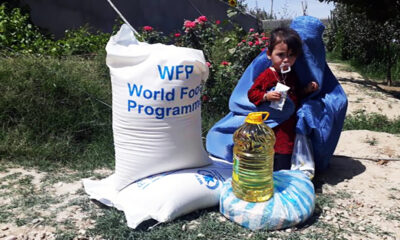Latest News
Afghanistan’s opium cultivation drops by 95% this year: UNODC
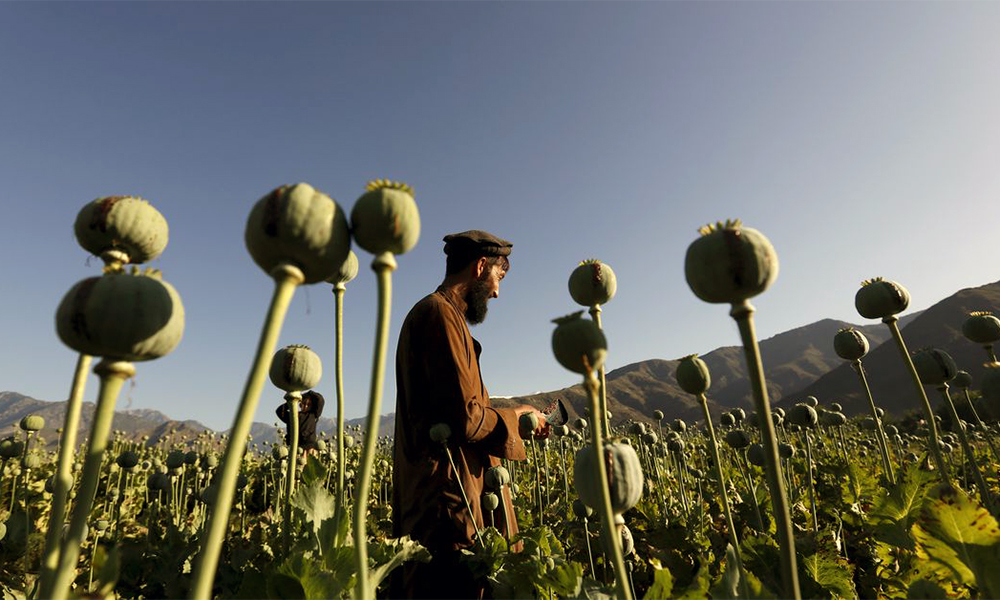
The United Nations Office on Drugs and Crime (UNODC) said Sunday that opium poppy cultivation in Afghanistan has plunged by an estimated 95 percent following a drug ban imposed by the Islamic Emirate of Afghanistan in April last year.
According to a statement issued by UNODC, this sharp decline in the opiate economy in Afghanistan is expected to have “far-reaching consequences”. The agency highlighted the urgent need for enhanced assistance for rural communities, accompanied by alternative development support to build an opium free future for the people.
UNODC said opium cultivation fell across all parts of the country, from 233,000 hectares to just 10,800 hectares in 2023.
The decrease has led to a corresponding 95 percent drop in the supply of opium, from 6,200 tons in 2022 to just 333 tons in 2023.
The sharp reduction has had immediate humanitarian consequences for many vulnerable rural communities who relied on income from cultivating opium.
Farmers’ income from selling the 2023 opium harvest to traders fell by more than 92 percent from an estimated
$1,360 million for the 2022 harvest to $110 million in 2023.
“This presents a real opportunity to build towards long-term results against the illicit opium market and the damage it causes both locally and globally,” said Ghada Waly, Executive
Director of UNODC.
“At the same time, there are important consequences and risks that need to be addressed for an outcome that is ultimately positive and sustainable, especially for the people of Afghanistan.
“Today, Afghanistan’s people need urgent humanitarian assistance to meet their most immediate needs, to absorb the shock of lost income and to save lives,” Waly added.
“And over the coming months, Afghanistan is in dire need of strong investment in sustainable livelihoods, to provide Afghan farmers with opportunities away from opium,” she said.
The strong contraction of the opium economy in 2023, is expected to affect Afghanistan’s economy on a larger scale.
Many farmers turned to cultivating wheat instead, with an overall increase of 160,000 hectares in cereal across a number of provinces.
While wheat cultivation may alleviate food insecurity to some extent, the crop generates much less income than opium, and farmers across four provinces, Farah, Kandahar, Nangarhar and Helmand, lost around $1 billion in potential income in 2023 by switching to wheat, UNODC said.
The agency stated that beyond Afghanistan, less heroin may lead to reduced trafficking and use – or it could spur the emergence of harmful alternatives, such as fentanyl and other synthetic opioids.
Trafficking in other drugs, namely methamphetamine, has surged in the region, UNODC stated.
Latest News
Pakistan’s Punjab CM calls for ‘human response’ to Afghan girls’ education ban
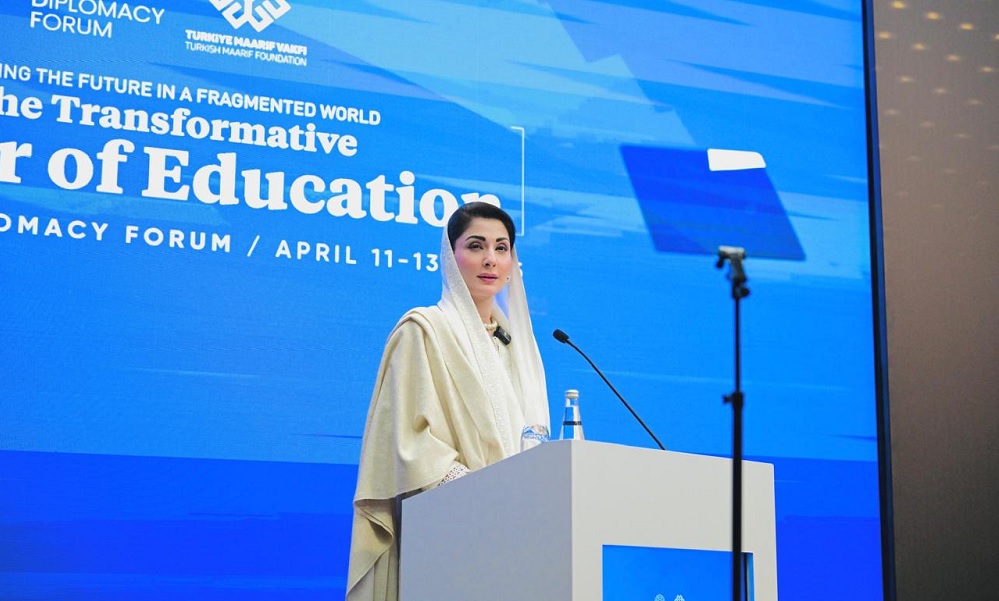
Maryam Nawaz, the chief minister of Pakistan’s Punjab province, on Saturday expressed regret over the educational restrictions on girls in Afghanistan, calling on the international community to address the issue.
Speaking at the Antalya Diplomacy Forum in Turkey, Maryam stressed that no society progresses without investing in the welfare of women and children.
“Innocent children lie under the rubble in Palestine. Girls in Afghanistan are denied access to schools. The children of Kashmir are victims of oppression. In Sudan, they walk miles for food. These are not isolated issues—they demand collective human response,” she said.
The Islamic Emirate has suspended education of girls beyond sixth grade.
This policy has been widely criticised internationally.
Latest News
IEA Supreme Leader defends public executions, says its as ‘part of Islam’
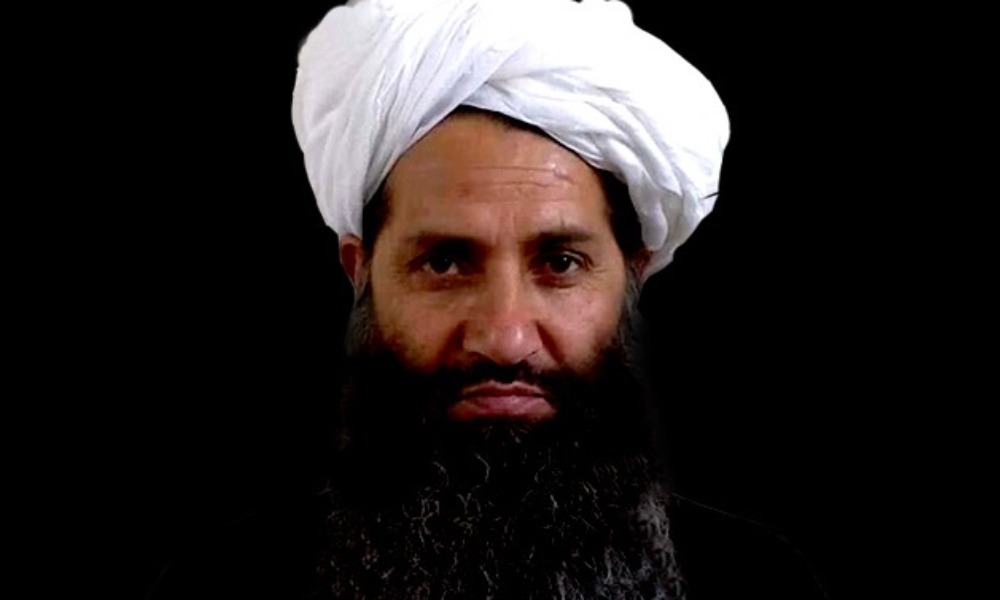
The Supreme Leader of the islamic Emirate of Afghanistan (IEA) Hibatullah Akhundzada has defended public executions and said these are an integral part of Islam.
In a voice clip reportedly taped during a speech at a seminar for Hajj instructors in Kandahar on Saturday, Akhundzada said: “We must carry out disciplinary measures, perform prayers and acts of worship. We must enter Islam completely. Islam is not just limited to a few rituals; it is a comprehensive system of all divine commands.”
Not a single command of Islam should be left unfulfilled, he is heard saying on the voice clip, which was posted to X by the IEA’s spokesman Zabihullah Mujahid.
God had commanded people to pray and to enforce his punishments, said Akhundzada, adding that the IEA did not wage war for power or wealth but rather to “implement Islamic law”. He rejected criticism of the executions.
This comes after widespread condemnation following the execution by firing squad on Friday of four men convicted of murder.
Akhundzada has previously rejected the need for Western laws in Afghanistan.
He said Saturday: “Yesterday, executions were carried out. You saw how much protest was raised in the world, and said that they [IEA] kill people, that they are oppressors, that they terrorize people. They call this terror; they call this against Sharia; but this is a Sharia order to take revenge. One order is to implement the orders of Allah. One order is to impose punishments,” said Akhundzada.
He added that the Islamic Emirate is facing a great test but they will not bargain with the world over Islam, religion, and the Prophet (PBUH).
Latest News
US food aid cut to worsen hunger in Afghanistan: WFP
The latest cut, according to the WFP, is amounting to “a death sentence for millions of people” if implemented.

The new cutoffs in U.S. emergency food aid could worsen the already widespread hunger in Afghanistan, as the World Food Program (WFP) can only support half of the impoverished people with just half rations, warned the WFP on Saturday.
As part of its plan to reduce government deficits, Trump’s administration decided in January to freeze all foreign aid for three months, and more recently, to terminate its emergency food funding to the WFP.
The latest cut, according to the WFP, is amounting to “a death sentence for millions of people” if implemented.
Mutinta Chimuka, WFP’s acting country director, urged international donors to keep supporting Afghanistan, as the country is facing the world’s second-largest humanitarian crisis.
According to Chimuka, the agency can provide assistance to barely eight million people this year. Chimuka said that is an estimation based on its optimistic anticipation that “we get everything else that we are expecting from other donors”.
To stretch the limited resources, the WFP has been giving a half ration to the impoverished individuals, she added.
The WFP plans to provide food assistance to two million people to fight against hunger in the future months, but Chimuka expressed her worries given the limited funding.
-

 Sport5 days ago
Sport5 days agoAfghanistan’s national futsal team heads to Morocco
-

 Sport4 days ago
Sport4 days agoAfghanistan win U-19 cricket series despite rain-impacted loss to Nepal
-
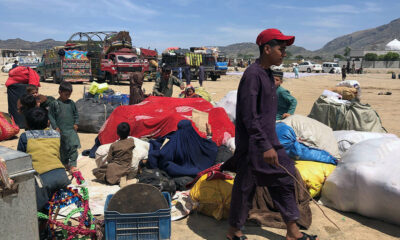
 Latest News5 days ago
Latest News5 days agoPakistan expels thousands of Afghan nationals in fresh drive, says UNHCR
-

 Latest News4 days ago
Latest News4 days agoIran’s Vice President advocates stronger ties with neighbors, especially Afghanistan
-
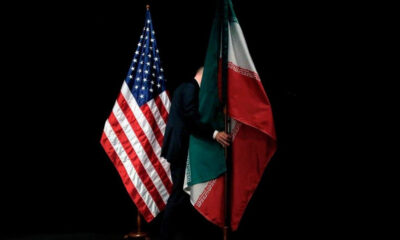
 Regional4 days ago
Regional4 days agoUS energy secretary sees tighter sanctions on Iran without deal
-
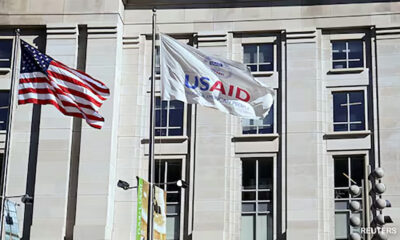
 Latest News4 days ago
Latest News4 days agoTrump administration moves to restore some terminated foreign aid programs, sources say
-

 Latest News4 days ago
Latest News4 days agoBigdeli updates Iran’s FM on current status of bilateral relations with Kabul
-
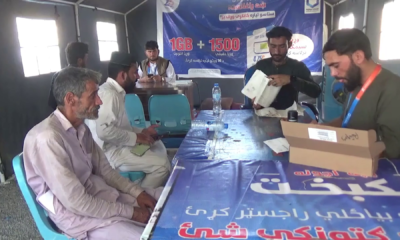
 Latest News4 days ago
Latest News4 days agoAWCC distributes free SIM cards to returning refugees from Pakistan








